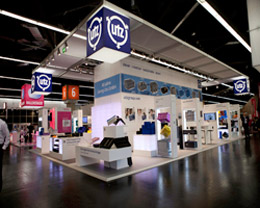Fabricating the future which has a new setting friendly way of polymerization
Many items within the contemporary globe from the plastics that dominate it towards digital chips that travel it are made of polymers
Supplied their ubiquity along with the evolving prerequisites of our globe, obtaining considerably better plus more efficient methods of generating them is definitely an ongoing investigate concern. Also, current environmental difficulties necessitate the use of systems and input supplies that happen to be atmosphere friendly.Current research by researchers from Nagoya Institute of Technology, Japan, may be during this vein, introducing a completely new twist to a polymerization procedure that has been about and effective given that the nineteen eighties: dwelling cationic polymerization, where the polymer chain expansion does not prime ghostwriter have the ability to terminate until finally the monomer is eaten. The researchers have, for the initially time, demonstrated steel free organocatalysis for this reaction at home temperature for vinyl and styrene polymers, two for the most popular polymers employed in plastics. Their way will not be only additional efficient than latest metal-based solutions, but additionally surroundings helpful. Their findings are posted with the Royal Modern society of Chemistry’s Polymer Chemistry.
In their review, they to begin with analyzed the applicability of non-ionic and multidentate (or several electron-pair accepting) halogen bonding organocatalysts, especially two iodine-carrying polyfluoro-substituted oligoarenes, to the dwelling cationic www.academicghostwriter.org/hire-essay-ghostwriter/ polymerization of isobutyl vinyl ether. Mentioning one in every of their motives for choosing this, Dr. Koji Takagi, lead scientist while in the research, explains in an apart: „The non-ionic attribute is advantageous as a result of the catalyst is soluble in a lot less polar solvents like toluene which is certainly additional ideal for such polymerization of vinyl monomers.“
They identified that with all the tridentate variant, the reaction efficiently progressed even at room temperature, developing superior yield — although lower than the theoretical restrict — inside of a affordable number of your time, without the catalyst http://www.transplantsurg.wustl.edu/ decomposing or appearing being an impurity on the product or service. As Dr. Takagi points out, this could be described as a beneficial benefit around existing metallic catalysts utilized in market: „While metal-based catalysts have substantially contributed for the items sciences in the last century, the contamination of remaining metallic impurities commonly delivers about a reduce during the generated materials‘ lifetime and effectiveness. We think that the current discovering will be responsible for the production of highly pure and dependable polymeric components.“
In indicating this, he is, obviously, referring for the other key choosing during the research as well
The second portion of their examine concerned evaluating the applicability of ionic iodoimidazolium catalysts with several counter anions (the negative ions accompanying the positively billed team) on the polymerization of p-methoxystyrene (pMOS) and unsubstituted styrene, the latter of which happens to be a great deal more challenging to polymerize as opposed to former.pMOS conveniently polymerized at area temperature inside of two hours and without any catalyst decomposition of the bidentate 2-iodoimidazolium salt that experienced a triflate counter anion. Unsubstituted styrene gave maximum polymer produce by means of a response at -10?C for twenty-four several hours using an anion-stabilizing and ponderous counter ion-containing catalyst.
Speaking with the products and solutions yielded, Dr. Takagi claims: „Although the acquired polymers are usually not meant for almost any special objective, our methodology is predicted to always be applied to the synthesis of conductive polymers and degradable polymers, which mustn’t contain metallic impurities if they are being manufactured for practical use.“
 Zurück zur Artikelübersicht
Zurück zur Artikelübersicht
















Schreibe einen Kommentar
Du musst angemeldet sein, um einen Kommentar abzugeben.